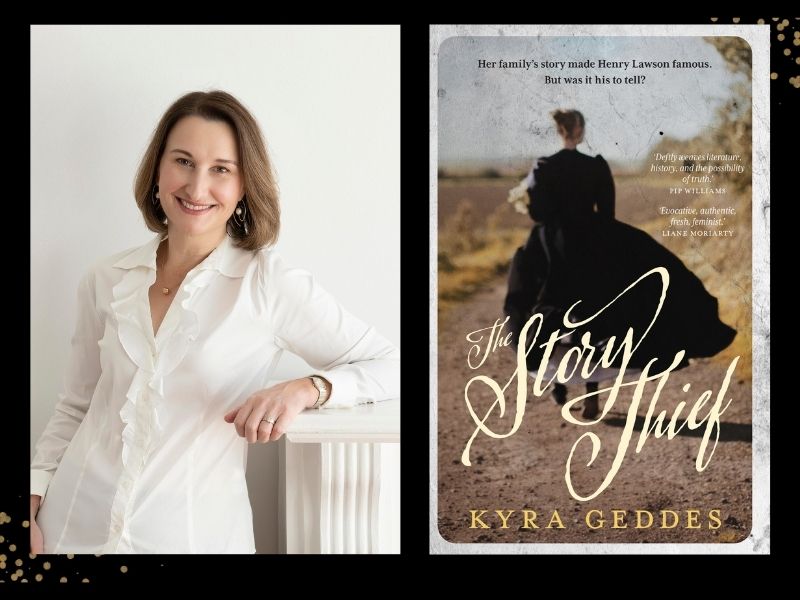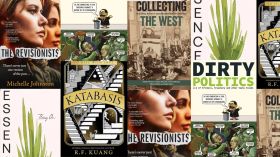The Story Thief follows the life of Lillian who, at a young age, loses her family to a bushfire on their family farm. She subsequently finishes her schooling at the Sacred Heart convent in New South Wales where she encounters the renowned Australian author, Henry Lawson’s short story The Drover’s Wife for the first time.
Still grappling with the loss of her family, Lillian is shocked by the similarities between Lawson’s story and that of her own family. She becomes convinced that Lawson was writing about her own family. Over the years, Lillian, fearing judgement, shares her suspicions with few people until, at Lawson’s funeral, she meets her husband, Roy Armstrong, in whom she confides everything.
After they marry, Lillian records all that she can on Lawson and his story, nurturing her lifelong conviction that he had narrated and stolen her family’s story. She lives her life and gives birth to two children, Henry and Margery, the former named after Lawson. The Story Thief is, therefore, a story about the roles that narratives play in our lives and their importance to an individual’s development of a sense of identity. It speaks to the epistemic and psychic violence that arises when another, even seemingly, narrates our story. It also captures the subtle ways in which we memorialise those with whom we do not share any affinity.
Beyond the presumed theft of Lillian’s life history, The Story Thief is also about the lives of Lillian’s descendants, through the enlistment of her son, Henry, in the army during World War II. Her son enlists to fight for a particular kind of national narrative and identity at a time when Australia is still struggling with its identity as a nation.
Despite having achieved Federation, the country still grappled with its place in the world, thereby precipitating its participation in both World Wars.
In an effort to safeguard the family she has built, Lillian tries to impress upon her son that he can write a different story that does not require him to sacrifice his life.
External sources continue to militate against her desire to weave a cohesive family narrative. Lillian laments that her son, other men and the world in general have gone mad. She mourns her lack of control over the lives of her children and the influences that shape them. Much like her son’s enlistment, her obsession with Lawson is fought over the battlefields of memory as familial boundaries are drawn at both the personal and national levels.
While Geddes neglects to write about the ways in which race informed the identities that were forged in pre- and post-Federation Australia and the lives of her white characters, except in passing, this book is for readers with an interest in history and feminist politics.
Read: Book review: Excitable Boy: Essays on Risk, Dominic Gordon
It is also for those who value the imaginative weaving of actual historical happenings into a compelling tale about identity, loss and the nature of personal identity. The prose is at times dry; however, overall, the book has merit and is impressive in its detail and knowledge of Australian history.
The Story Thief by Kyra Geddes
Publisher: Affirm Press
ISBN: 9781922992277
Pages: 432pp
RRP: $34.99
Publication date: 30 April 2024






